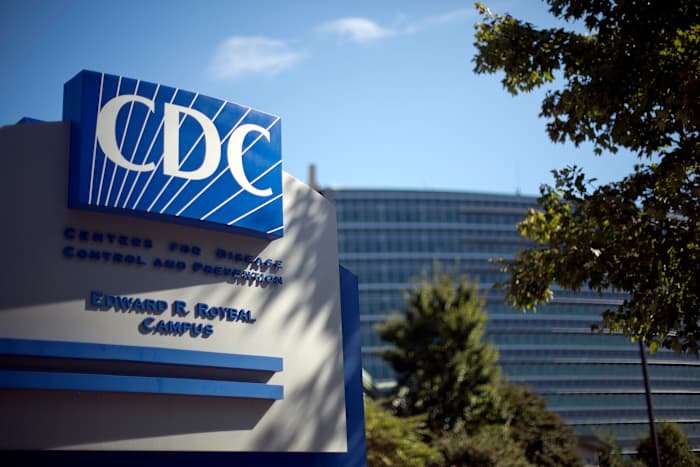Orlando, FL – Orlando residents are being urged to check their refrigerators and freezers after a deadly listeria outbreak was linked to heat-and-eat chicken fettuccine alfredo products sold at popular grocery stores, including Kroger and Walmart. The outbreak, which has tragically claimed three lives and resulted in one pregnancy loss, has prompted a nationwide recall and a wave of concern, especially here in Central Florida where these stores have a strong presence.
What You Need to Know About the Listeria Outbreak
The Centers for Disease Control and Prevention (CDC) and the U.S. Food and Drug Administration (FDA) have traced a recent surge in listeria infections to ready-to-eat chicken fettuccine alfredo products. These meals, marketed under several store brands, were distributed to major grocery chains, including Kroger and Walmart, both of which operate multiple locations across the Orlando metro area.
Listeria monocytogenes is a serious bacterium that can cause severe illness, particularly in pregnant women, newborns, older adults, and people with weakened immune systems. Symptoms usually begin within one to four weeks after consuming contaminated food and can include fever, muscle aches, and gastrointestinal issues. In Orlando, at least two cases are under investigation, but more could be undiagnosed or unreported at this time.
The products in question have been pulled from shelves, but health officials urge anyone who recently purchased chicken fettuccine alfredo meals from Kroger or Walmart to check the recall details and dispose of the items if necessary.
How the Outbreak Unfolded
The outbreak was first identified after a cluster of severe listeria cases was reported in several states, including Florida. Through epidemiological tracking and laboratory testing, investigators linked the strain of listeria to specific batches of chicken fettuccine alfredo. The affected products were sold in refrigerated and frozen sections, typically as single-serve or family-size heat-and-eat meals.
Both Kroger and Walmart issued statements expressing their commitment to consumer safety and confirming their cooperation with the recall. They have also posted notices in stores, including several locations in the Orlando area, to alert shoppers. The FDA recall notice provides a comprehensive list of affected lot codes and best-by dates. Residents can check these details on the official websites or by visiting the FDA Recalls & Safety Alerts page.
Impact on the Orlando Community
Orlando’s diverse and growing population relies heavily on supermarkets like Kroger and Walmart for convenient meal options. The recall has sparked concern across neighborhoods, especially among families, pregnant women, and those with underlying health conditions. Local hospitals have reported an uptick in calls from anxious residents seeking advice about potential exposure.
Dr. Ana Martinez, an infectious disease specialist at Orlando Health, emphasized the importance of vigilance: “If you have eaten one of these products and are experiencing symptoms such as fever, chills, or severe stomach upset, seek medical attention immediately. Listeria can be particularly dangerous for pregnant women and immunocompromised individuals.”
Orlando health officials are also coordinating with state and federal agencies to monitor the situation and provide timely updates to the public. Community organizations and food banks have been alerted to ensure that recalled products are not distributed to vulnerable populations.
What to Do If You Have Purchased the Recalled Product
For those who have recently shopped at Kroger or Walmart in Orlando or the surrounding areas, it’s crucial to take the following steps:
- Check your fridge and freezer: Look for any chicken fettuccine alfredo products, especially those labeled with the affected lot numbers and best-by dates listed in the recall.
- Do not consume: If you find any of the recalled products, do not eat them. Place them in a sealed bag and throw them away to prevent cross-contamination.
- Clean and sanitize: Thoroughly clean any surfaces, containers, or utensils that may have come into contact with the recalled food.
- Monitor your health: If you or anyone in your household develops symptoms consistent with listeria infection, contact your healthcare provider right away.
Both Kroger and Walmart are offering refunds for returned recalled products and have customer service hotlines to address concerns. For more information, customers can visit the customer service desk at their local store or call the numbers listed on the official recall notice.
Staying Safe: Listeria Prevention Tips
While this outbreak is a stark reminder of the risks associated with processed foods, there are steps Orlando residents can take to protect themselves:
- Stay informed: Sign up for food recall alerts from the FDA or CDC to receive timely updates about potentially harmful products.
- Practice good hygiene: Regularly wash your hands, kitchen surfaces, and utensils, especially after handling raw or ready-to-eat foods.
- Cook foods thoroughly: Although ready-to-eat meals are designed for convenience, double-check that they reach the recommended internal temperature before eating.
- Be extra cautious if you’re high
















